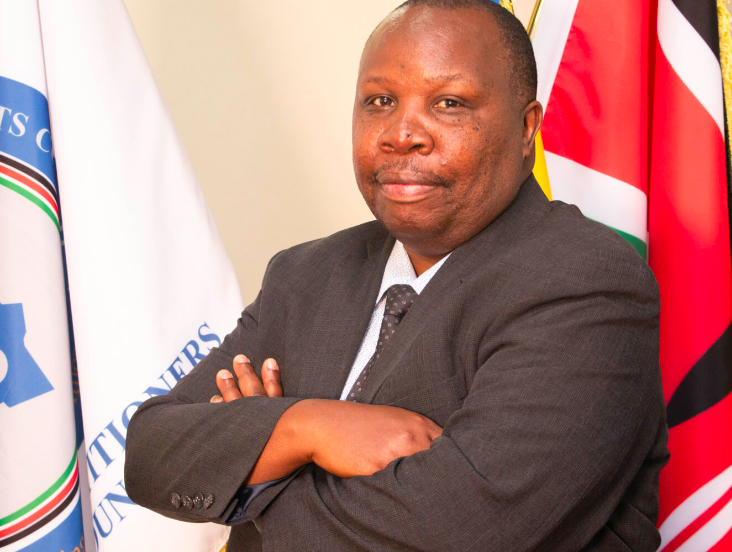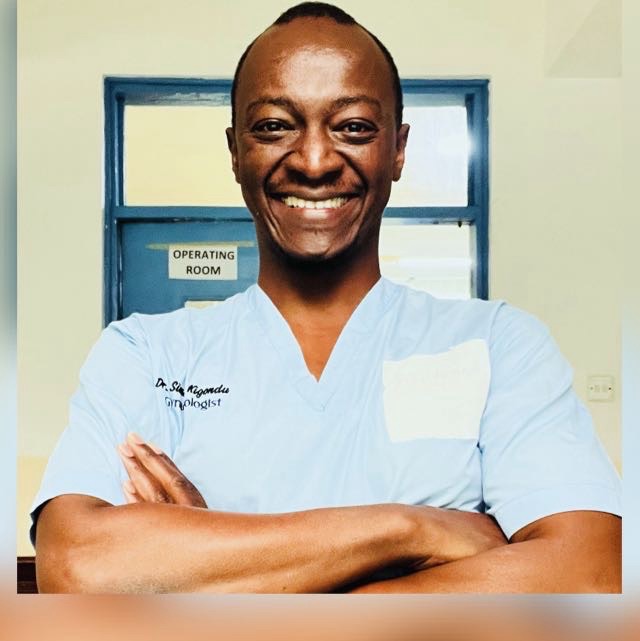 The degree clinical officers say they are seeking the title "doctor" to differentiate them from Diploma holders.
The degree clinical officers say they are seeking the title "doctor" to differentiate them from Diploma holders.A title steeped in tradition is under quiet siege. Kenyan law grants the 'Dr' prefix to medical doctors, dentists and, of course, those who’ve earned a PhD.
But in practice, that line has already blurred. Pharmacists adopted the title ‘Doctor’ about 30 years ago. And now, Clinical Officers (COs) are now knocking on the same door, seeking seeking the same title.
“We have made three submissions to the [clinical officers] council and we gave them three weeks, which elapsed on March 28 without any response. We are doing the next step to enable use the title,” said Felix Ouko, the treasurer of the Bachelor of Clinical Medicine Graduates Association, an obscure society that is making the push.
He said the association will file a petition in court to compel their council to allow them use the venerated title.
The Star has sought comment from Ibrahim Wako, the CEO of the Clinical Officers Council.
Ouko said their goal is to differentiate holders of the Bachelor of Clinical Medicine (BCM) from the diploma holders.
“If you look at the Clinical
Officers (Training, Registration and Licensing) Act 2017 Cap 20 Clause 19, it gave the
council the mandate to prescribe the title,” he said.
The association says physicians (medical doctors) and dentists are strongly opposed to this bid because it could lead to their loss of control of the title "Dr" and the medical profession itself.
Approximately 1,000 of the roughly 25,000 registered clinical officers in Kenya are Bachelor of Science (BSc) in Clinical Medicine graduates.
“Most people at the helm of the Ministry of Health are doctors and they know we will give them competition in practice and that’s why they’re blocking us,” Ouko said.
The Kenyan Medical Practitioners and Dentists Council is currently the only body expressly allowed by law to confer this title to medical practitioners.
 The Kenyan Medical Practitioners and Dentists Council CEO Dr David Kariuki. "The sanctity of this title must be protected because the public trusts anyone with that title."
The Kenyan Medical Practitioners and Dentists Council CEO Dr David Kariuki. "The sanctity of this title must be protected because the public trusts anyone with that title."The KMPDC licenses graduates of the Bachelor of Medicine and Bachelor of Surgery (MBChB), and the Bachelor of Dental Science (BDS) degrees.
KMPDC CEO Dr David Kariuki said the sanctity of this title must be protected because the public trusts anyone with that title.
He said the council is concerned about the increase in the number of online platforms where individuals using the title “doctor” provide false medical advice and treatment to unsuspecting users.
“These 'doctors' may pose a significant risk to public health, as their diagnoses and treatment plans are often based on unverified or outdated information, leading to misdiagnosis, delayed diagnosis, or even exacerbating underlying health conditions,” he said.
He said Section 22 (3) of the Medical Practitioners and Dentists Act CAP 253 forbids the use of the the title "doctor" by people not registered or licensed by KMPDC, or those not trained as doctors elsewhere or people without PhD.
“It is an offence under Section 22 (2) of CAP 253, Laws of Kenya, to use the title Dr (Medical/dental) without the requisite qualifications or to purport to offer medical/dental services while using this title. This offence carries the penalties of a fine not exceeding Sh5,000,000, imprisonment for a term not exceeding five years, or both,” he said.
The public can verify the authenticity of “doctors” through the KMPDC registers at https://kmpdc.go.ke/Registers/practitioners.php or via SMS to 20547.
In Kenya, pharmacists who have graduated with a Bachelor of Pharmacy (Bpharm) degree are a curious exception because they publicly use the title “Dr” but are not medical doctors.
They are registered under the Pharmacy and Poisons Act, which does not mention the title Dr.
In many countries, pharmacists are not allowed to use this title unless they have a Doctor of Pharmacy (PharmD) degree, which takes a longer study period and is currently not offered in Kenya.
In the United States, pharmacists who hold a Doctor of Pharmacy degree can use the title "Dr" professionally. However, they are typically referred to as "Pharmacist" to avoid confusion with medical doctors.
That’s the case in many countries such as Canada, Britain, India, Germany, Australia, and South Africa.
Kenyan pharmacists petitioned to use the title Dr. around 1995 to distinguish them from pharmaceutical technologists, who are mostly diploma holders.
The Kenya Medical Association sued to stop them but the case has never been resolved.
Currently, doctors and pharmacists even have one trade union, the Kenya Medical Practitioners, Pharmacists and Dentists Union (KMPDU), whose secretary general is a pharmacist.
Current KMA President Dr Simon Kigondu said qualifications and title are not equivalent to scope of practice.
 Dr Simon Kigondu, the President of the Kenya Medical Association.
Dr Simon Kigondu, the President of the Kenya Medical Association.That means merely having the title “Dr” does allow everyone to do the
work of a medical doctor.
Only medical doctors (holders of MBChB degree) and dentists (and clinical officers) are allowed to treat patients independently. Pharmacists can still treat certain minor health conditions.
“If it was such a huge problem to get pharmacists to use the title Dr, sembuse (what about) clinical officers,” he said.
Dr Kigondu explained clinical officer are equivalent to physician assistants in the West, who cannot use the title Dr.
CO training began as a diploma course in the 1960s when Kenya had few doctors. “But the Kenya Medical Training College has continued offering the course even when we have many doctors because it makes money for them, yet there are few jobs for COs. So for career progression, some universities started a four-year degree calling it Bachelor of Science in Clinical Medicine. The problem is when they finish, despite a degree, they’re still a clinical officer,” he said.
“We want to stop training of clinical officers because we now have enough doctors. Those COs working can continue working until they retire. The young ones can look for training to become doctors. We have successful COs who did MBChB degrees and became medical doctors.”
The COs association said their plan is not to compete with medical doctors. They said there are other allied health workers – such as chiropractors and Ayurvedics, and degree veterinary medicine graduates – also known as “doctors”.
“We want a clear distinction between diploma and degree COs. We have done surgeries and many cesarian sections,” Ouko said.
The term Doctor comes from the Latin word for "teacher" which originally referred to a small group of theologians who had approval from the Church to speak on religious matters.
Eventually in the late 1100s, the term saw greater use referring to qualified academic. The title “Doctor” later began being used for physicians without doctoral degrees. Different countries have different policies on which medical practitioners can use the title.







